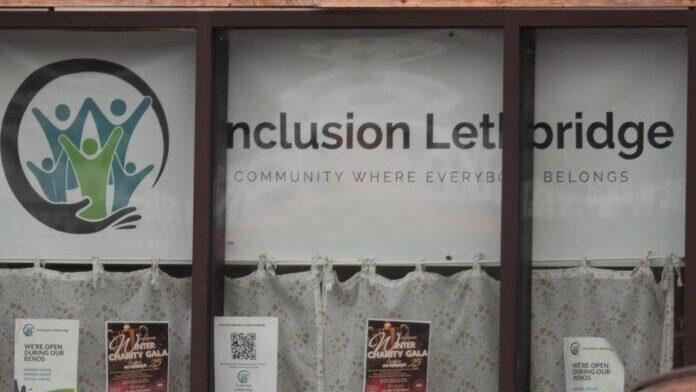The federal government is set to roll out the new Canada Disability Benefit this summer, but the move will impact individuals receiving AISH payments in Alberta.
However, that impact might not necessarily be positive.
Currently, the payment for a single person on AISH, or Assured Income for the Severely Handicapped, in Alberta is $1,901 a month, which is the highest in the country.
The new federal benefit would add an additional $200 a month, but in Alberta, that will not be the case.
With the introduction of the federal program, the provincial government plans to keep the baseline AISH payment the same, which means recipients will not be getting that extra $200 from Ottawa.
“I’m disappointed that Alberta is the only province in Canada which is going to be deducting this $200 a month from the current AISH payments, so that’s the claw back that we’re referring to,” says Bruce MacKay, president of the board of directors for Inclusion Lethbridge, a local nonprofit that supports people with disabilities.
“Families are disappointed too, because we always hope the best for our sons and daughters and loved ones with disabilities and we want them to live the best life.”
He notes that $200 may not seem like a lot of money, but it can be a difference-maker.
“It can make a difference in meeting the rent, having enough food on the table – those things that most of us take for granted. But for people who depend on AISH because they are unable to be employed, they can’t work, that $200 a month could be a big difference.”
MacKay says it is confusing as to why the province decided to claw back the $200. “It’s hard not to make an analogy to the bully in the playground who is picking on kids smaller than themselves, and it’s not really clear why they want to claw it back,” he remarks.
“I guess [because] it’s a federal program, so some of the statements have been, ‘well the feds are now paying some of their fair share to support people with disabilities in the province, so that means the province doesn’t have to carry quite the same kind of load that it would have – that they do now’. It’s confusing and it doesn’t make sense.”
MacKay adds that a companion program to AISH, called the Alberta Disability Assistance Program, or ADAP, has been announced. However, he says details on that are scarce.
“It’s a program that’s supposed to help people that are able to be employed, maybe not to the fullest extent, and it’s supposed to be a companion piece to AISH, but we don’t know exactly how it’s going to work [and] what the details are,” he notes.
“Alberta is one of the richest provinces in the country and so why shouldn’t that wealth, you know, improve the lives of all Albertans, regardless of ability? To claw it back like this, it does seem sort of mean-spirited, I guess, but I think they’re very concerned about their budgets and balancing their budgets.”
MacKay adds it is highly important to remember that people with disabilities bring value to their community.
“Unfortunately, I think supports for people with disabilities are often seen as an expense line in the budget and the result is it kind of devalues what people with disabilities contribute, just through their personal connections with other people, through their volunteer activities, any number of things. It’s disappointing for sure,” he says, adding one’s value should not have to be measured by any dollar amount.
“How do you put a dollar cent value on a cheerful smile when someone is happy to see you … just in our daily lives, we value those sorts of experiences, and it’s just disappointing for that value not to be recognized.”
MacKay says anyone with concerns can contact Inclusion Lethbridge by visiting the team in-person (527 6 St. In Lethbridge), emailing the nonprofit or by calling (403) 327-2911.







